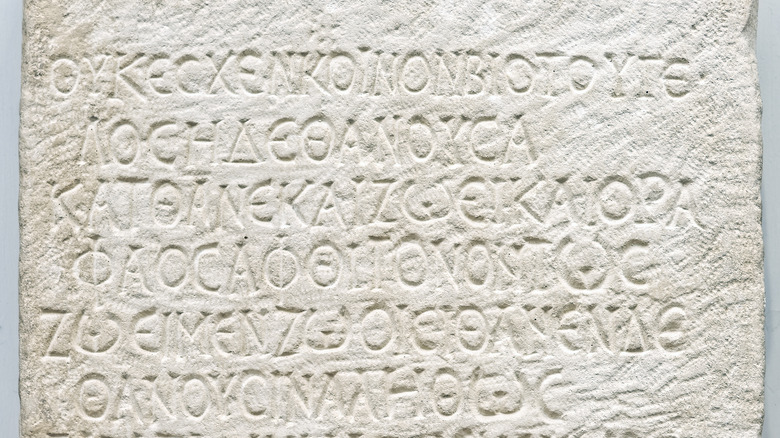The Real Reason The Gnostic Gospels Aren't In The Bible
Every once in a while, it comes back around: Some big brain who just finished reading "The DaVinci Code" puts on his tinfoil hat and says, "Hey man, don't you know the early Church covered up the truth about Jesus? It's all there, man, in the Gnostic Gospels! They censored them, but they have all the stuff they didn't want you to know."
Well — sort of, big brain, but calm down. The Gnostic Gospels are real, but they weren't really systematically snuffed out (they mostly just faded into history), and you can still read them — quite a few of them, at least — right now. And they were mostly rejected from Bible canon for some pretty straightforward reasons. Let's take a look at the Gnostic Gospels, what they are, and why they didn't quite make the cut.
In his book "Judas and the Gospel of Jesus" (quoted here at Grand Canyon University), New Testament scholar N.T. Wright lays out the main reasons that the Gnostic Gospels didn't make it into the Christian canon. In the first place, Wright says, the Gnostic Gospels are just much newer texts than the four canonical gospels. While we have pretty good evidence that Matthew, Mark, Luke, and John were all composed in the first century (or very early in the second, at the latest), we don't have any evidence that any of the Gnostic Gospels existed till late in the second century. In other words, the canonical gospels are early enough to make credible claims to being eyewitness accounts (though, as PBS points out, most modern scholars agree they aren't). Conversely, the Gnostic Gospels are fanfic several generations removed from Jesus' time on earth.
Why the Gnostic Gospels were left out, according to N.T. Wright
In the second place, the teachings of the Gnostic Gospels are different enough from the established canon that they never really stood a chance. While canonical Scripture teaches that Jesus was "incarnated" in a full human body, the Gnostic Gospels teach that Christ's body was an illusion or a "spiritual body." Accordingly, they teach that salvation is attained by "escaping" from the physical world as opposed to redeeming it. Further, while canonical Scriptures teach of a continuity between the God of Israel in the Old Testament and the God revealed as Jesus in the New Testament, the Gnostic Gospels teach that the God of Israel was actually the corrupt "demiurge" (a lesser deity) and that Jesus is the "true God" (via Britannica).
Finally, while the canonical gospels teach a message that is preached publicly and available to all, the Gnostic Gospels teach salvation by "secret knowledge" that Jesus only gave to a few. So there you have it. If you're still interested in that secret knowledge, you can (once again) go get it here. Just be warned that it might be a tougher read than the latest Dan Brown thriller.

